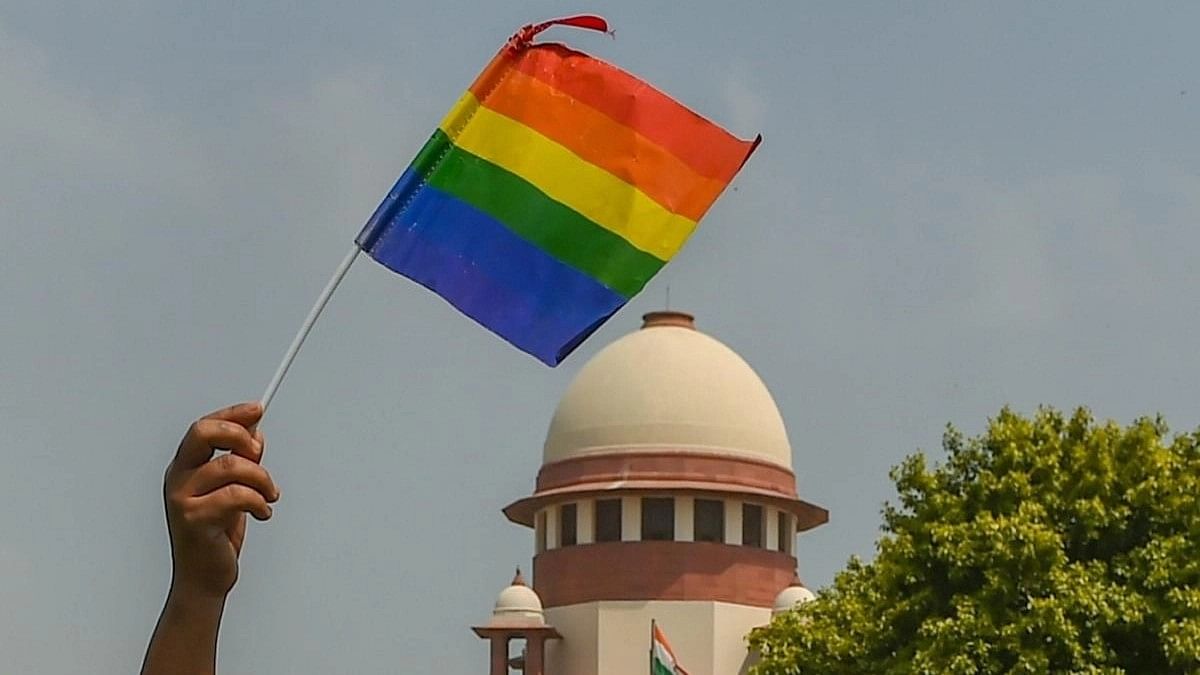
An activist waves a rainbow flag (LGBT pride flag) in front of the Supreme Court.
Credit: PTI Photo
The Supreme Court’s refusal to accord legal recognition to same-sex marriage is a setback to the LGBTQ+ community which had hoped that they would be granted the right to equality in full by the court, with acceptance of their right to marriage. The court said that the right to marriage is not a fundamental right, but the expectation was that it would flow from the right to life, the right to equality, the right to privacy, and the right to non-discrimination that the court has upheld in umpteen judgements in the past.
After the 2017 judgement on the right to privacy and the 2018 judgement that decriminalised homosexuality, the right to marriage of members of the LGBTQ+ community was considered a natural follow-up. The court went close to it but refused to take the decisive step. It left the matter to parliament, which is as good as leaving the matter at the stage where the case started.
While the five judges of the bench disagreed on many details, all of them refused to amend the Special Marriage Act to recognise same- sex marriage. Chief Justice of India D Y Chandrachud said the court could not make the law but could only interpret it and give effect to it. But in a wider sense, the petitions before the court were not for striking down the Special Marriage Act which the court rightly said would lead to unintended and undesired consequences.
What was sought was a reinterpretation of its wording which would give effect to it in its real spirit. This the court failed to do. The CJI and Justice Kishan Kaul said queer couples have their right to recognition of their union, but Justices Hima Kohli, Ravindra Bhat and P S Narasimha held that such recognition could only be based on law. Marriage is indeed a social institution, but it is individuals who make the choice to create the institution, and so their rights, which govern choices, should be given precedence over the legal conditions and social norms that surround marriage.
The court has, in effect, accepted the executive’s position on same-sex marriage. Given the known position of the government on the matter, it is unrealistic to expect that it would accept the idea in any form. The court agrees that same-sex couples have the right to cohabit and be free from threats and coercion, but there is no agreement on their right to adopt children. It has directed the government to decide the rights and entitlements of queer couples.
There is no assurance about how the government would take it and implement it. The judgement shows that the LGBTQ+ community has a long struggle ahead to get their rights accepted.